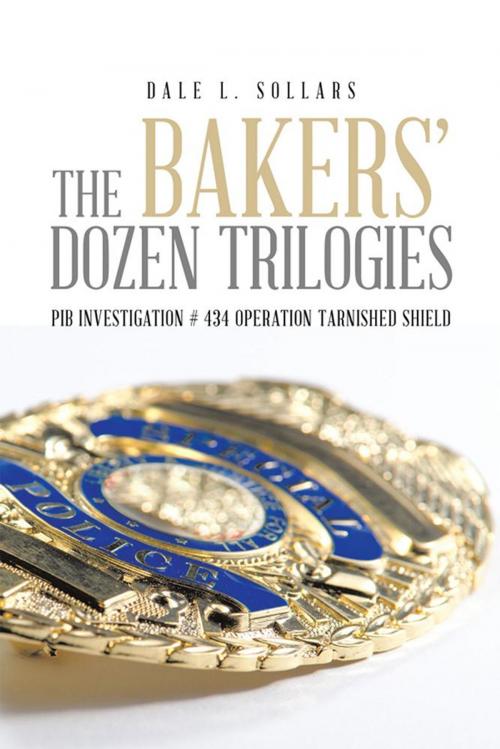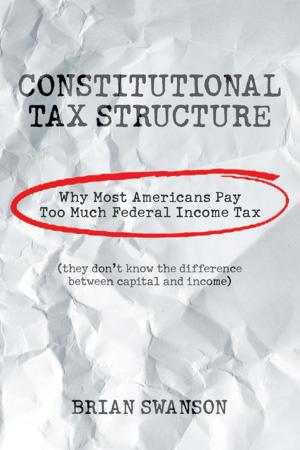| Author: | Dale L. Sollars | ISBN: | 9781543413854 |
| Publisher: | Xlibris US | Publication: | May 3, 2017 |
| Imprint: | Xlibris US | Language: | English |
| Author: | Dale L. Sollars |
| ISBN: | 9781543413854 |
| Publisher: | Xlibris US |
| Publication: | May 3, 2017 |
| Imprint: | Xlibris US |
| Language: | English |
During the 1980s through 1990s, Washington, DC, leadership was in shambles following the arrest of Mayor Marion Barry on drug charges. When Barry was reelected as mayor after being released from prison, the outraged United States Congress slashed every cent possible from the city budget, a decision that would ultimately take revenge on the entire city. The Congresss retaliation was swift and widespread throughout the city government . . . and the Metropolitan Police Department. Congress defunding the citys metropolitan police had a devastating effect on everything from crime rates to the restructuring of the entire department. Not one cent was budgeted for the police department. Congresss view of city management echoed that of a national opinion in that a city reelecting a jailbird as their mayor deserved everything it got. Long-established hiring practices that had once made the Metropolitan Police Department a premiere agency were all but eliminated. Many times, the hiring of new officers was left to the discretion of a few persons within the agency. Cronyism was rampant, and hiring standards were lowered. The friends of some city officials were hired as police recruits even though their drug arrest convictions would have excluded them from being hired under earlier standards. During the late 1980s, one recruit class had over 40 percent of their recruit officers subjected to department disciplinary action or were terminated during their very first year of service. One academy class was embarrassed by the arrest of seven new recruits for outstanding felony warrants. Apparently, no one had bothered to check the applicants names through the National Criminal Database for outstanding warrants. Or perhaps had this been a carefully planned strategy to hire unqualified and unemployed city residents and lessen a growing unemployment problem? Either way, anyone with a prior arrest record and fortunate enough to have friends in high places could be a police officer. One high-ranking police official was heard to privately comment, Hire them now, fire them later. Operation Tarnished Shield is the third fictional story in the Bakers Dozen series of novels. This is based on an actual criminal investigation that was conducted by the Washington, DC, Metropolitan Police Departments Office of Professional Standards (OPS) and the Federal Bureau of Investigation (FBI) in the mid-1990s that led to an eighteen month investigation and the subsequent arrest and conviction of twelve metropolitan police officers. Had the entire operation not been hastily closed down because of the impending murder of one of their own, its certain that there would have been more officers arrested, making it a bakers dozen.
During the 1980s through 1990s, Washington, DC, leadership was in shambles following the arrest of Mayor Marion Barry on drug charges. When Barry was reelected as mayor after being released from prison, the outraged United States Congress slashed every cent possible from the city budget, a decision that would ultimately take revenge on the entire city. The Congresss retaliation was swift and widespread throughout the city government . . . and the Metropolitan Police Department. Congress defunding the citys metropolitan police had a devastating effect on everything from crime rates to the restructuring of the entire department. Not one cent was budgeted for the police department. Congresss view of city management echoed that of a national opinion in that a city reelecting a jailbird as their mayor deserved everything it got. Long-established hiring practices that had once made the Metropolitan Police Department a premiere agency were all but eliminated. Many times, the hiring of new officers was left to the discretion of a few persons within the agency. Cronyism was rampant, and hiring standards were lowered. The friends of some city officials were hired as police recruits even though their drug arrest convictions would have excluded them from being hired under earlier standards. During the late 1980s, one recruit class had over 40 percent of their recruit officers subjected to department disciplinary action or were terminated during their very first year of service. One academy class was embarrassed by the arrest of seven new recruits for outstanding felony warrants. Apparently, no one had bothered to check the applicants names through the National Criminal Database for outstanding warrants. Or perhaps had this been a carefully planned strategy to hire unqualified and unemployed city residents and lessen a growing unemployment problem? Either way, anyone with a prior arrest record and fortunate enough to have friends in high places could be a police officer. One high-ranking police official was heard to privately comment, Hire them now, fire them later. Operation Tarnished Shield is the third fictional story in the Bakers Dozen series of novels. This is based on an actual criminal investigation that was conducted by the Washington, DC, Metropolitan Police Departments Office of Professional Standards (OPS) and the Federal Bureau of Investigation (FBI) in the mid-1990s that led to an eighteen month investigation and the subsequent arrest and conviction of twelve metropolitan police officers. Had the entire operation not been hastily closed down because of the impending murder of one of their own, its certain that there would have been more officers arrested, making it a bakers dozen.















